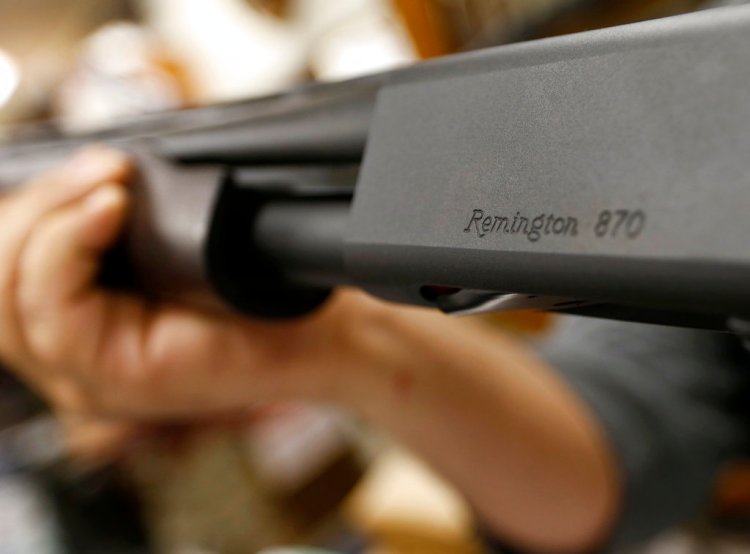Remington, a company that began making flintlock rifles when there were only 19 United States, has filed for bankruptcy protection.
Mounting debts at the arms manufacturer have snowballed since the election of Donald Trump, even though he has called himself a “true friend” to the gun industry.
Remington, which has roots dating to 1816, has lined up $100 million with lenders to continue operations.
It remains unclear what will happen to the 3,500 or so employees at Remington as it reorganizes.
Panic sales that drove revenue for gun makers ever higher evaporated with Trump’s arrival in the White House, and Remington’s legal problems stemming from production of the Bushmaster AR-15 have overwhelmed the Madison, North Carolina, company.
Late Sunday, according to records from the bankruptcy court of the district of Delaware, Remington Outdoor Co. agreed to a prepackaged deal that would give holders of the company’s $550 million term loan an 82.5 percent stake, according to a release. Third-lien note holders will take 17.5 percent of Remington and four-year warrants get a 15 percent stake.
The Bushmaster AR-15 rifle was used in the Sandy Hook shooting in Connecticut in which 20 first-graders and six educators were killed in 2012. The same gun was used to kill 17 in a Parkland, Florida, high school, a massacre that drew hundreds of thousands of anti-gun-violence protesters to Washington and the streets in cities across the nation over the weekend.
The company was cleared of wrongdoing in the Sandy Hook shooting, but investors wanted nothing to do with it. Cerberus Capital Management, which had acquired the company in 2007 as gun sales began to boom, tried to sell it less than a week after the shooting.
There were no takers. But it was larger trends already underway that doomed Remington.
Arms manufacturers had for years ramped up production as gun ownership became a red-hot social and political flashpoint. Some gun-rights advocates have binged on guns in the belief that a Democratic administration would harshly restrict gun sales. But that became moot with Trump’s rise to the White House.
Trump was the first sitting president to address the National Rifle Association in three decades, telling members at their annual meeting last spring that “you have a true friend and champion in the White House.” Any belief that more restrictive regulation was on the way evaporated.
In 2017, firearm background checks, a good barometer of sales, declined faster than in any year since 1998, when the FBI first began compiling that data.
But there already were clear signs that gun sales, even as production increased, were already in decline. Cold Holdings Co., another storied gun maker, had filed for Chapter 11 bankruptcy protection in 2015.
Profit growth at Sturm, Ruger & Co. is under severe pressure and the company’s shares are down 18 percent this year.
Some of Wall Street’s heaviest hitters are stepping into the national debate on guns as investment firms ask firearms makers what they are doing about gun violence.
BlackRock is a major shareholder in gun makers Sturm Ruger, American Outdoor Brands and Vista Outdoor Brands. About a week after the shooting in Parkland, BlackRock said it wanted to speak with the three firearms makers about their responses to the tragedy.
It’s also looking into creating new investment funds for investors that exclude firearms makers and retailers.
Send questions/comments to the editors.



Success. Please wait for the page to reload. If the page does not reload within 5 seconds, please refresh the page.
Enter your email and password to access comments.
Hi, to comment on stories you must . This profile is in addition to your subscription and website login.
Already have a commenting profile? .
Invalid username/password.
Please check your email to confirm and complete your registration.
Only subscribers are eligible to post comments. Please subscribe or login first for digital access. Here’s why.
Use the form below to reset your password. When you've submitted your account email, we will send an email with a reset code.